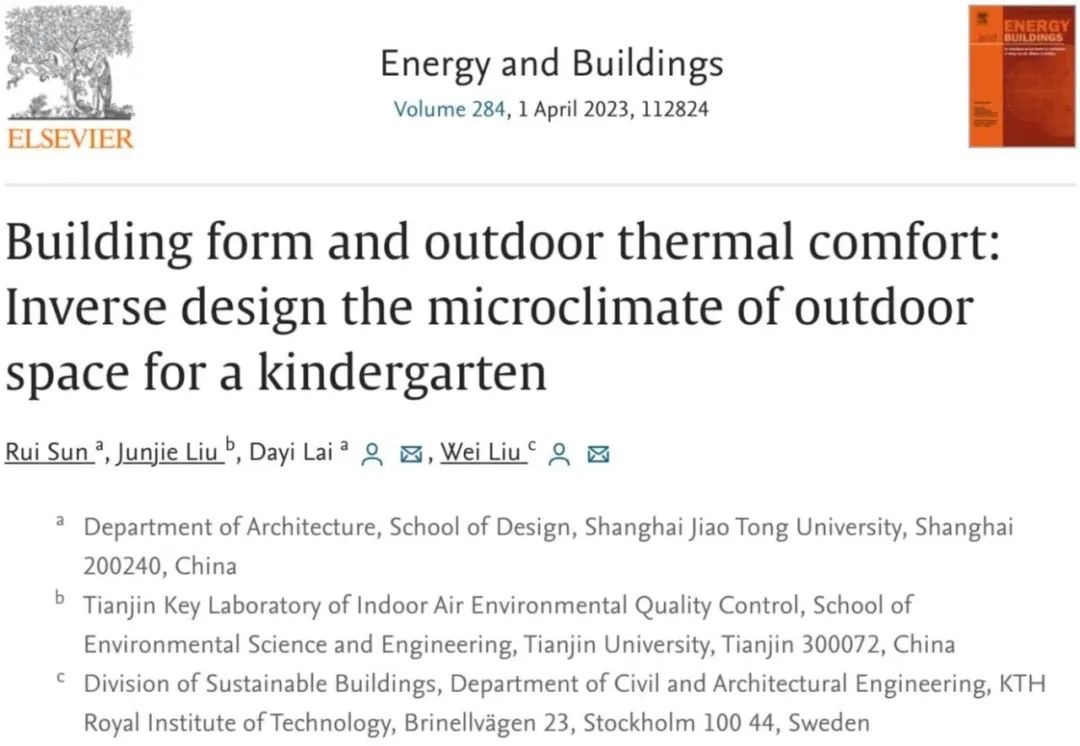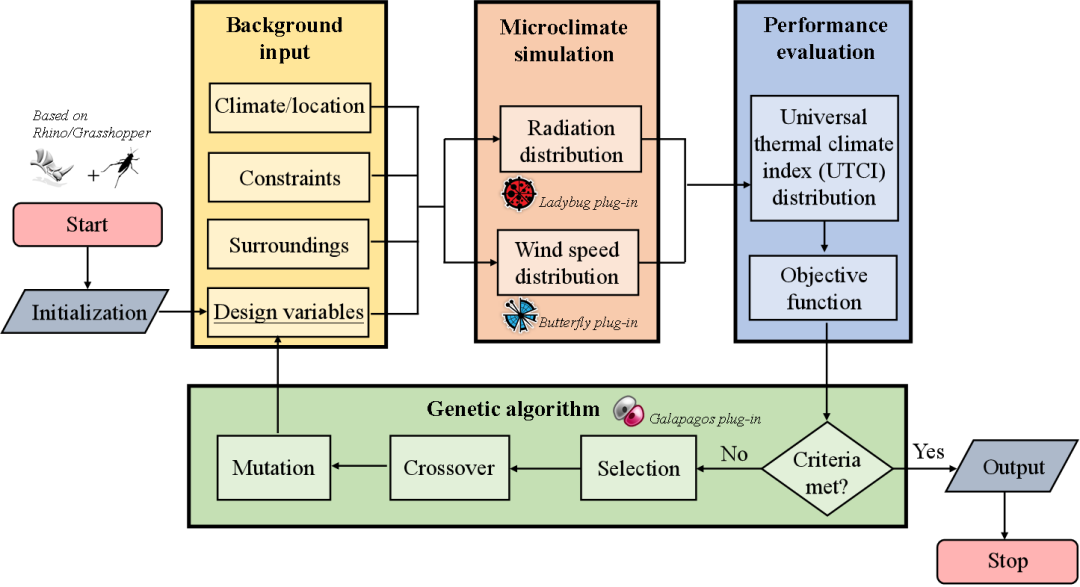
Recently, Sun Rui, a graduate student from the architectural technology team of the Department of Architecture, School of Design, Shanghai Jiao Tong University, published an academic paper titled “Building Form and Outdoor Thermal Comfort: Inverse Design the Microclimate of Outdoor Space for a Kindergarten”. This paper proposes a reverse design method for outdoor thermal comfort based on computational fluid dynamics and genetic algorithms, and applies this method to the outdoor space design of kindergartens under the climate conditions of Shanghai and Tianjin.
Abstract
Thermally comfortable microclimates are essential for creating high-quality outdoor spaces that attract citizens and boost urban vitality. Previous design efforts to improve outdoor thermal comfort were usually conducted at large scales, such as the city scale, neighborhood scale, and urban block scale. Few researchers focused on the building scale. This study proposes an optimization framework based on genetic algorithms to determine the building shape, orientation, and location during early stages of design that reduces the overall thermal stress in targeted outdoor space. Solar radiation and wind fields were simulated to obtain the outdoor Universal Thermal Climate Index (UTCI) as the performance indicator. The simulations were validated against experimental data. This investigation applied the proposed optimization framework to design outdoor spaces for a kindergartens in climates in Tianjin and Shanghai, respectively. The results showed that optimization reduced overall thermal stress. The most favourable kindergarten forms were suggested through optimization. Moreover, solar radiation has been proved to contribute more to outdoor thermal comfort than wind field, and heat stress is more important than cold stress during optimization. This study supplements the inverse design of outdoor thermal comfort at the building scale and provides suggestions to create comfortable urban outdoor spaces.

Editor on Duty: Diwei Chen
Responsible Editor: Qianqian Jiang, Yuhe Fu

